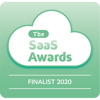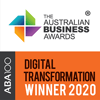Data Science
Data science: Data science is the study of extracting knowledge from large amounts of data. It encompasses a wide range of activities including statistical analysis, machine learning, data visualization, and database management. Data science has emerged as a key discipline in recent years due to the increasing availability of large datasets from a variety sources such as social media, sensors, and scientific experiments.
Data Science is a rapidly growing field that is revolutionising the way businesses and organisations are able to make decisions. With its ability to turn vast amounts of data into actionable insights, Data Science has become an essential tool for any company looking to gain a competitive edge. In this article, we will explore what Data Science is and how it can be used to drive innovation in business.
Data Science is the process of extracting knowledge from large datasets using mathematical tools and techniques such as machine learning algorithms. It involves applying statistical models and predictive analytics on raw data in order to uncover trends, patterns, correlations and other types of insight that would otherwise remain hidden. Such insights can then be used to develop better strategies, optimise processes or create new products.
Data Science combines elements from multiple disciplines including computer science, mathematics, statistics and engineering. Its applications span many industries such as finance, healthcare, retail and manufacturing where companies need powerful analytical capabilities to stay ahead of their competition. To understand more about how Data Science works and why it’s so important for modern businesses today, read on!
What Exactly Data Science Do?
Data Science is an interdisciplinary field that has become increasingly popular in recent years. It combines elements from areas such as mathematics, statistics, computer science and engineering to analyse large datasets for the purpose of deriving insights and making predictions about future behaviour or trends. Data Scientists use techniques like machine learning, predictive analysis and supervised learning to extract valuable information from these datasets. In addition, they also employ data analytics tools to uncover patterns within the data.
Data Scientist roles are becoming more widespread across a variety of industries due to the increasing availability of big data sources. Companies now rely on their ability to interpret complex datasets and make informed decisions based on this new wealth of information. In many cases, data scientists play a key role in helping organisations succeed by providing relevant insights into business performance through data-driven solutions.
The job responsibilities of a Data Scientist vary depending on the organisation but typically involve analysing large amounts of structured and unstructured data; developing algorithms to automate processes; creating visualisations via software such as Tableau; generating reports with accurate conclusions/recommendations; designing experiments for measuring outcomes (e.g., A/B testing); presenting findings to stakeholders; and collaborating with other departments (such as marketing) to identify opportunities for improvement within the company's operations. As demand continues to rise for professionals who can interpret vast quantities of data accurately, those skilled in this area will be well positioned for success in today’s economy.
What Are The 3 Main Uses Of Data Science?
Data Science is a field that focuses on extracting information and insights from data. It involves the use of methods such as data mining, machine learning models, predictive analytics, and statistical techniques to analyse large amounts of structured and unstructured data. Data scientists are responsible for applying these techniques to uncover patterns in data, identify trends, and make predictions about future events or outcomes.
The three main uses of Data Science are:
- data mining,
- data visualisation,
- and business analytics.
Data mining is used to explore the underlying structure in a dataset by discovering correlations among various variables. This process can be used to create more efficient databases or more accurate predictive models for decision-making processes. Data Visualization involves creating visual representations of datasets which allow users to quickly digest large amounts of complex information. Business Analytics combines statistics with technology to gain insight into current market conditions and help businesses make better decisions based on their findings.
Data Scientists typically hold a degree in one of many different disciplines related to Data Science including Computer Science, Mathematics, Statistics, Economics or Information Technology; however there are also several online courses and programs available if you would like to pursue an education in this field without committing four years of your life towards completing a traditional degree program. There are numerous projects out there for aspiring Data Scientists looking for experience within the industry ranging from simple analysis tasks all the way up to full-fledged Machine Learning Models built specifically for predicting future behaviours or outcomes. Regardless of where you want to take your career path within the realm of Data Science, it’s important that you understand its fundamentals before attempting any major project or undertaking any sort of job responsibilities involving big data analysis.
What Are The 4 Types Of Data Science?
Data Science is a powerful tool for understanding and manipulating large datasets. It helps to identify trends, patterns, correlations, and other insights from data that can be used by businesses to drive decision-making processes. Data science involves working with various types of data such as structured, unstructured, time series, text, images etc., in order to analyse it. There are four main types of data science:
- Data engineers.
- Regression algorithms.
- Decision trees.
- Learning algorithms.
Data Engineers are responsible for designing the infrastructure needed to store and process large amounts of data. They use technologies like Hadoop or Apache Spark to manage the data pipeline architecture within an organisation. The goal is to make sure that all parts of the system work together efficiently so the right results can be extracted from the raw data.
Regression Algorithms are used when there is a need to predict future outcomes based on past events. These algorithms look at relationships between multiple variables over time in order to forecast what could happen next. Decision Trees are another type of algorithm which uses decision rules to classify objects into categories according to certain criteria. This makes decision making much easier and faster than if done manually by humans. Finally, Learning Algorithms involve training machines so they can understand how different elements interact with each other in order to optimise performance over time.
These four types of data science have been widely adopted by organisations across many industries including finance, healthcare, retail and more due to their accuracy and efficiency in helping solve complex business problems quickly. Business analysts often utilise these techniques during their research projects while machine learning engineers use them extensively for developing automated systems capable of performing tasks without human intervention. When applied correctly these methods can provide invaluable insight into customer behaviour or operational efficiency that would otherwise not be available through traditional methods alone – thereby enabling companies to stay ahead of competition or identify new opportunities before anyone else does. Ultimately this means greater success and profitability for those who leverage the power of data science in their day-to-day operations or strategic initiatives via big data analytics projects or prescriptive analytics solutions using predictive models developed by skilled experts in this field
What Is Data In Science Example?
Data in science is the collection of information used to study and analyse a particular phenomenon. It is also referred to as data sets, which are composed of individual pieces of digital or physical information collected from various sources such as surveys, experiments, observations, simulations, and more. Data scientists use this data to build models that can be applied to understand real-world problems.
The type of data used for any given project depends on the research question being addressed and the goals of the researcher or science team. For example, large datasets may require a data engineer while smaller projects might involve natural language processing techniques used by business managers. There are many different types of statistical models and neural networks that can be employed depending on what kind of results a scientist wants to achieve. Additionally, there are several degree programs available for those interested in pursuing a career in data science.
To gain an understanding of how data science works, it helps to look at practical examples like using machine learning algorithms for fraud detection or building predictive models for customer segmentation. Other applications include analysing medical images with computer vision systems, creating recommendation engines based off user profiles, and running sentiment analysis on social media posts. By looking closely at these case studies we can get an idea of how data plays an important role in modern day scientific endeavours.
Conclusion
Data science is a rapidly emerging field that utilises data to extract insights and make predictions. Its applications span many industries, making it an invaluable tool for solving complex problems. Data science involves the collection of large amounts of data from various sources, followed by the extraction of useful information through analysis and experimentation. The results can be used to create predictive models, visualise trends in data, or uncover patterns that may otherwise have gone undetected.
The three main uses of data science are prediction, visualisation, and pattern recognition. Predictive models allow organisations to anticipate future events based on current trends in available data sets. Visualisation techniques provide meaningful representations of data points which can help researchers gain insight into their datasets quickly and easily. Pattern recognition enables scientists to detect relationships between variables which could reveal how different factors interact with each other within a system or environment.
A classic example of the use of data science is the application of machine learning algorithms to recognise images such as faces or objects. By analysing vast numbers of images using sophisticated algorithm-driven processes, computers can accurately predict what they see in any given image – even if it contains elements unseen before by humans. This demonstrates the power of combining powerful computing capabilities with large volumes of collected data to solve real world problems effectively and efficiently.
PREVIOUS NARROW AI GLOSSARY TERM
NEXT NARROW AI GLOSSARY TERM
Data Science Definition
Exact match keyword: Data Science N-Gram Classification: Data Science Tools, Data Science Courses, Data Science Certification Substring Matches: Data, Science Long-tail variations: "Data Science Tools", "Data Science Courses", "Data Science Certifications" Category: Technology, Education Search Intent: Learn, Research, Solutions Keyword Associations: AI, Big data, Machine learning Semantic Relevance: Artificial Intelligence, Big data Analysis, Machine Learning Algorithms Parent Category: Technology/Education Subcategories: Artificial Intelligence, Big data Analysis, Machine Learning Algorithms Synonyms: AI, Big data, Machine learning Similar Searches: Artificial Intelligence, Big data Analysis, Machine Learning Algorithms Geographic Relevance: Global Audience Demographics: Researchers, Professionals and students Brand Mentions : IBM Watson , SAP Leonardo , SAS Industry-specific data : Open Source Libraries , Model Deployment Platforms Commonly used modifiers : "Tools" ,"Certification","Courses" Topically relevant entities : Artificial Intelligence ,Big data Analysis ,Machine Learning Algorithms ,Data Mining Techniques , Open Source Libraries ,Model Deployment Platforms."Larry will be our digital expert that will enable our sales team and add that technological advantage that our competitors don't have."
Kerry Smith
CEO, PFD Foods
$1.6 billion in revenue 
"Lion is one of Australasia’s largest food and beverage companies, supplying various alcohol products to wholesalers and retailers, and running multiple and frequent trade promotions throughout the year. The creation of promotional plans is a complicated task that requires considerable expertise and effort, and is an area where improved decision-making has the potential to positively impact the sales growth of various Lion products and product categories. Given Complexica’s world-class prediction and optimisation capabilities, award-winning software applications, and significant customer base in the food and alcohol industry, we have selected Complexica as our vendor of choice for trade promotion optimisation."
Mark Powell
National Sales Director, Lion
"At Liquor Barons we have an entrepreneurial mindset and are proud of being proactive rather than reactive in our approach to delivering the best possible customer service, which includes our premier liquor loyalty program and consumer-driven marketing. Given Complexica’s expertise in the Liquor industry, and significant customer base on both the retail and supplier side, we chose Complexica's Promotional Campaign Manager for digitalizing our spreadsheet-based approach for promotion planning, range management, and supplier portal access, which in turn will lift the sophistication of our key marketing processes."
Richard Verney
Marketing Manager
Liquor Barons

"Dulux is a leading marketer and manufacturer of some of Australia’s most recognised paint brands. The Dulux Retail sales team manage a diverse portfolio of products and the execution of our sales and marketing activity within both large, medium and small format home improvement retail stores. We consistently challenge ourselves to innovate and grow and to create greater value for our customers and the end consumer. Given the rise and application of Artificial Intelligence in recent times, we have partnered with Complexica to help us identify the right insight at the right time to improve our focus, decision making, execution, and value creation."
Jay Bedford
National Retail Sales Manager
Dulux

"Following a successful proof-of-concept earlier this year, we have selected Complexica as our vendor of choice for standardizing and optimising our promotional planning activities. Complexica’s Promotional Campaign Manager will provide us with a cloud-based platform for automating and optimising promotional planning for more than 2,700 stores, leading to improved decision-making, promotional effectiveness, and financial outcomes for our retail stores."
Rod Pritchard
Interim CEO, Metcash - Australian Liquor Marketers
$3.4 billion in revenue 
"After evaluating a number of software applications and vendors available on the market, we have decided to partner with Complexica for sales force optimisation and automation. We have found Complexica’s applications to be best suited for our extensive SKU range and large set of customers, being capable of generating recommendations and insights without burdening our sales staff with endless data analysis and interpretation.
Aemel Nordin
Managing Director, Polyaire
"DuluxGroup is pleased to expand its relationship with Complexica, a valued strategic partner and supplier to our business. Complexica’s software will enable DuluxGroup to reduce the amount of time required to generate usable insights, increase our campaign automation capability, personalise our communications based on core metrics, and close the loop on sales results to optimise ongoing digital marketing activity."
James Jones
Group Head of CRM, DuluxGroup
"Instead of hiring hundreds of data scientists to churn through endless sets of data to provide PFD with customer-specific insights and personalised recommendations, Larry, the Digital Analyst® will serve up the answers we need, when we need them, on a fully automated basis without the time and manual processes typically associated with complex analytical tasks.”
Richard Cohen
CIO, PFD Foods
$1.6 billion in revenue 
"As a global innovator in the wine industry, Pernod Ricard Winemakers is always seeking ways to gain efficiencies and best practices across our operational sites. Given the rise of Artificial Intelligence and big data analytics in recent times, we have engaged Complexica to explore how we can achieve a best-in-class wine supply chain using their cloud-based software applications. The engagement is focused on Australia & New Zealand, with a view to expand globally."
Brett McKinnon
Global Operations Director, Pernod Ricard Winemakers
"70% - 80% of what we do is about promotional activity, promotional pricing -- essentially what we take to the marketplace. This is one of the most comprehensive, most complex, one of the most difficult aspect of our business to get right. With Complexica, we will be best in class - there will not be anybody in the market that can perform this task more effectively or more efficiently than we can."
Doug Misener
CEO, Liquor Marketing Group
1,400+ retail stores 
"The key thing that makes such a difference in working with Complexica is their focus on delivering the business benefits and outcomes of the project."
Doug Misener
CEO, Liquor Marketing Group
1,400+ retail stores 
"Australia needs smart technology and people, and it has been a great experience for me to observe Complexica co-founders Zbigniew and Matt Michalewicz assemble great teams of people using their mathematical, logic, programming, and business skills to create world-beating products. They are leaders in taking our bright graduates and forging them into the businesses of the future."
Lewis Owens
Chairman of the Board, SA Water 
"Having known the team behind Complexica for some years ago now, I am struck by their ability to make the complex simple - to use data and all its possibilities for useful purpose. They bring real intelligence to AI and have an commercial approach to its application."
Andrew McEvoy
Managing Director, Fairfax Media - Digital 
"I have worked with the team at Complexica for a number of years and have found them professional, innovative and have appreciated their partnership approach to delivering solutions to complex problems."
Kelvin McGrath
CIO, Asciano 
“Working with Complexica to deliver Project Automate has been a true partnership from the initial stages of analysis of LMG’s existing processes and data handling, through scoping and development phase and onto delivery and process change adoption. The Complexica team have delivered considerable value at each stage and will continue to be a valued partner to LMG."
Gavin Saunders
CFO, Liquor Marketing Group 
“Complexica’s Order Management System and Larry, the Digital Analyst will provide more than 300 Bunzl account managers with real-time analytics and insights, to empower decision making and enhanced support. This will create more time for our teams to enable them to see more customers each day and provide the Bunzl personalised experience.”
Kim Hetherington
CEO, Bunzl Australasia 
"The team behind Complexica develops software products that are at the cutting edge of science and technology, always focused on the opportunities to deliver a decisive competitive edge to business. It has always been a great experience collaborating with Matthew, Zbigniew and Co."
Mike Lomman
GM Demand Chain, Roy Hill Iron Ore 
"The innovations that the Complexica team are capable of continue to amaze me. They look at problems from the client side and use a unique approach to collaborating with and deeply understanding their customers challenges. This uniquely differentiates what they bring to market and how they deliver value to customers."
John Ansley
CIO, Toll Group 
"Rather than building out an internal analytics team to investigate and analyse countless data sets, we have partnered with Complexica to provide our sales reps with the answers they need, when they need them, on a fully automated basis. We are excited about the benefits that Larry, the Digital Analyst will deliver to our business.”
Peter Caughey
CEO, Coventry Group 
“Complexica’s Order Management System and Larry, the Digital Analyst will provide more than 300 Bunzl account managers with real-time analytics and insights, to empower decision making and enhanced support. This will create more time for our teams to enable them to see more customers each day and provide the Bunzl personalised experience.”
Kim Hetherington
CEO, Bunzl Australasia 
"After an evaluation process and successful proof-of-concept in 2016, we have chosen to partner with Complexica to upgrade the technological capability of our in-field sales force. The next-generation Customer Opportunity Profiler provided by Complexica will serve as a key tool for sales staff to optimise their daily activities, personalise conversations and interactions with customers, and analyse data to generate actionable insights."
Stephen Mooney
Group Sales Capability Manager, DuluxGroup
$1.7 billion in revenue
"After evaluating a number of software systems available in the marketplace, we have ultimately selected Complexica as our vendor of choice for sales force automation and CRM. Given the large SKU range we carry and very long tail of customers we serve, Complexica’s applications are best suited to deal with this inherent complexity without burdening our staff with endless data entry."
Nick Carr
CEO, Haircaire Australia
Australia's largest distributor of haircare products
“Asahi Beverages is Australia’s largest brewer, supplying a leading portfolio to wholesalers and retailers, including some of Australia’s most iconic brands. Last year Asahi Beverages acquired Carlton & United Breweries, which is its Australian alcohol business division. To harness the strength of our expanded portfolio, we partner with our customers to run multiple and frequent trade promotions throughout the year, delivering long-term growth for both our business and theirs. Given the inherent complexity in optimising promotional plans and our continued focus on revenue and growth management, we have selected Complexica as our vendor of choice after a successful Proof-of-Concept of its world-class optimisation capabilities.”
Kellie Barnes
Group Chief Information Officer
Asahi Beverages
"Dulux is a leading marketer and manufacturer of some of Australia’s most recognised paint brands. The Dulux Retail sales team manage a diverse portfolio of products and the execution of our sales and marketing activity within both large, medium and small format home improvement retail stores. We consistently challenge ourselves to innovate and grow and to create greater value for our customers and the end consumer. Given the rise and application of Artificial Intelligence in recent times, we have partnered with Complexica to help us identify the right insight at the right time to improve our focus, decision making, execution, and value creation."
Jay Bedford
National Retail Sales Manager, DuluxGroup
"At Liquor Barons we have an entrepreneurial mindset and are proud of being proactive rather than reactive in our approach to delivering the best possible customer service, which includes our premier liquor loyalty program and consumer-driven marketing. Given Complexica’s expertise in the Liquor industry, and significant customer base on both the retail and supplier side, we chose Complexica's Promotional Campaign Manager for digitalizing our spreadsheet-based approach for promotion planning, range management, and supplier portal access, which in turn will lift the sophistication of our key marketing processes."
Richard Verney
Marketing Manager, Liquor Barons


































